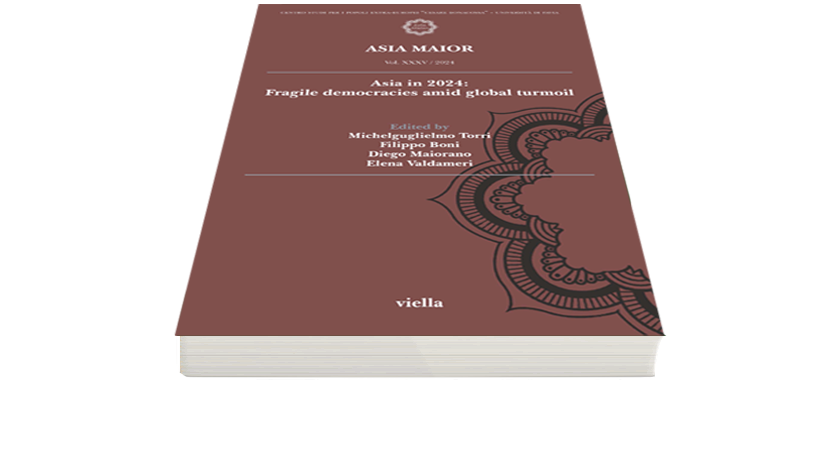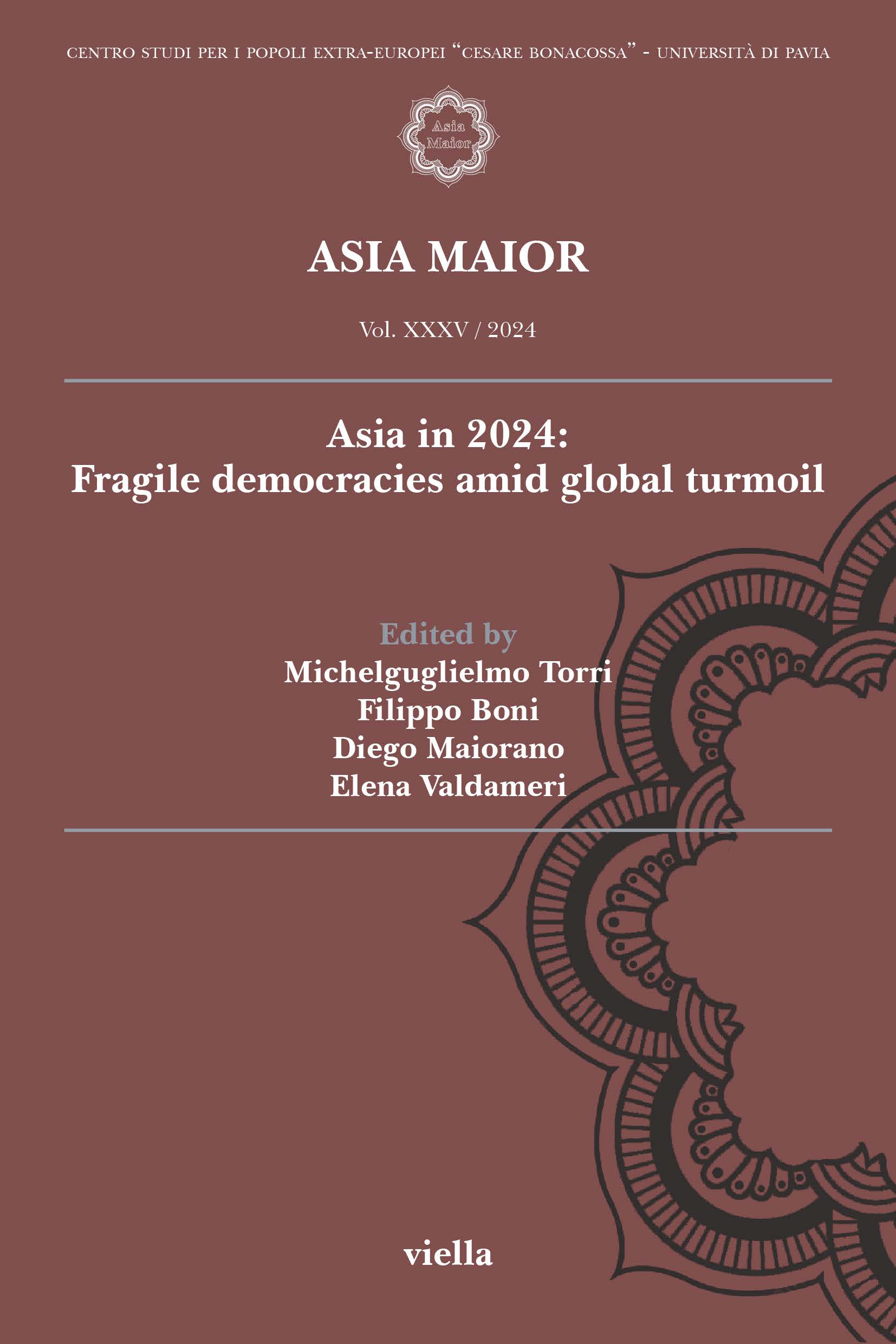Rethinking Think Tanks in Contemporary China
Available also in pdf – Download Pdf
Silvia Menegazzi, Rethinking Think Tanks in Contemporary China, Cham: Palgrave Macmillan, 2018, 207 pages (ISBN 978-3-319-57299-4).
If you study the Chinese political system, whichever methodological perspective you adopt, you will inevitably come across two long-term crucial issues: one is the complex relation between the State, the Chinese Communist Party and civil society; the other is the debate on the contribution given by experts to improve government quality and effectiveness. In both cases the situation has experienced profound changes in the last forty years, as a direct consequence of an ongoing ambitious reform process.
The study of think tanks in the Chinese context places itself in an ideal intersection between these two substantial issues.
On the one hand, these knowledge producing organisations are traditionally conceived as an expression of the civil society’s will and as instruments for its participation in the policy making process. Examining their role could shed light on previously unsuspected involvements of social actors in the decision-making practices.
On the other hand, think tank’s contribution in constructing meaning and shared understanding of policy issues, and in problem formulation and agenda-setting, primarily depends on the intellectual resources of experts. Selected data on the think tanks personnel could better define the profile of the experts and widen our understanding of who is entitled to a consultative role in the People’s Republic of China apparatus.
Due to China’s national political context, where decision making is deeply controlled and highly centralised, think tanks have often raised scholarship interest, mainly with the aim of tracking similarities and differences with their international counterparts in terms of organisation features, research activities, political participation strategies and social roles.
The purpose of this volume, as stated by its author, is to analyse think tanks in contemporary China (2007-17) and their contribution to policy making processes, especially in the field of foreign policy. The book consists of six chapters, but it can roughly be divided into two thematic sections: a first section establishes the theoretical framework adopted for the study (chapter 2) and reviews the international studies on think tanks in China (chapter 3); the second section presents two case studies concretely defining the role, functions and scope of activity of a range of Chinese think tanks (chapter 4 and 5).
Applying the theoretical narrative of knowledge regimes – thus considering think tanks as knowledge producing organisations established in a specific national context – is deem useful by the author to emancipate her analysis from the independence dilemma issue. The question of think tanks independence from governmental bodies has been a key concern in previous literature on think tanks in China. In it, the analysis revolved around the degree of autonomy claimed by think tanks not fully separated from the government sector, in performing policy research.
The monograph under review focusses on the political environment characterized by the above-mentioned constraints. By applying the category of knowledge regimes as an analytical framework, the author considers think tanks as institutional and organisational tools by which ideas are generated in a process highly influenced by the national context. This method takes into account local peculiarities as an important factor in shaping the phenomenon under examination, but at the same time it frees the author’ analysis on think thanks’ functions and roles from the tight boundaries often associated with an alleged Chinese political uniqueness.
The most innovative contribution of this book lays in the two case studies, namely the discussion of the role of Chinese think tanks in the realms of economic diplomacy and environmental diplomacy at home and abroad. The two case studies are based on a number of selected examples.
Given China’s growing commitment to global governance and multilateral talks, in the last decades the country think tanks have often been involved in worldwide activities pertaining to negotiations and policy making, thus developing a new profile. Hence the book concentrates on the «new generation think tanks», founded after 2007, characterised by their participation in international networks and forums, by personnel stemming from different professional backgrounds and by the common attention to international themes. The members of these think tanks are either Chinese with a national academic research background or previous roles as government or party officials, or Chinese Western returnees.
The author speculates on the effects that the long-term exposure of the Chinese think tank personnel to international networks cooperation might have in the future. Possibly, it could result in changes in Chinese think tank working modes, research practices, theories, strategies and social roles.
The first case study draws from the field of economic diplomacy, defined as the arena where non-state actors contribute (at the local and global level) to the decision making and negotiation processes in connection to international economic relations. This is a very important field of political action as China, in its continuing efforts aimed at the realisation of economic goals, now stands in favour of free-trade liberalisation, both in the internal and international markets. This strategy is associated with the promotion in multilateral contexts of a different understanding of the liberal world order (p.110). The author presents a general overview of some outstanding Chinese think tanks working on economic issues and discusses their role in China’s economic diplomacy.
The second case study is centred on environmental diplomacy, defined as the instrument to promote the building of an international climate change regime, encompassing national standards and interests. The peculiarity of China’s position with respect to this issue, affirms the author, is that at present the country is not considered a responsible actor by its international counterparts yet, despite China’s efforts to lower emissions and reduce pollution (p.131). The chapter highlights that the role of think tanks in the existing knowledge regime will probably develop in parallel to the historical changes in this field and the political environment in which the decision mechanisms are rooted.
The analysis of the action of the Chinese think tanks in the field of environmental diplomacy is aimed at challenging the assumption depicting China as a country where sustainability is mainly enforced through top-down decisions and policies promoted by central government organs, leaving virtually no space for public participation. Nonetheless, the author acknowledges the existing obstacles to the actions and strategies of environmental policy research organisations, ranging from a complex and multi-layered context of action, to the fragmentation of governance and the selection of cooperation or confrontation attitudes by different actors. Based on these preliminary observations, the study depicts a quite composite and uneven panorama where the number of non-governmental think tanks is rising. The new actors in the analysis of the environmental challenges are quite independent from individual sponsorship and committed to research policy advocacy. Though they still lack any institutionalised role in policy making and a clear legal status.
To conclude, according to the author, nowadays think tanks working on economic or environmental policies are still subordinated to the government through bureaucratic organization, personal connections and funding mechanisms. Nonetheless, the relationship between the government and policy research organisations is now more balanced and mutually beneficial than in the past (p. 124).
The book, embedded in a rich international scholarly bibliographic background, offers an original contribution to the study of Chinese think tanks (2007-17) and leads the reader in the discovery of this realm, fostering her/his curiosity. The overall development of the text is consistent with the declared study’s design and objectives.
Besides, the polyphony deployed in the exam of most of the main themes of the research testifies to the wide variety of sources examined. The book displays rich and up-to-date bibliographic references, partly in the Chinese language, which testifies to its origin, rooted in the author doctoral thesis, confirming its academic credentials.
The cited Chinese sources, – either in the English or Chinese languages – are examples of official discourse, academic discourse, media discourse and practitioners’ points of view. Often, they mention themes which are directly linked to broader trends or well-known narratives of the national past. In a few occasions, the author fails in highlighting these long-term mechanisms or representations, missing an occasion to locate her research work in dialectical relation to the literature of other fields in the social sciences, recontextualising it in a broader perspective. This is the case, for example, with regards to the process of internationalisation of think tanks or their mission to improve China’s image at the international level.
Notwithstanding these minor flaws, one of the qualities of the book is the commitment to a critical representation of the Chinese political context in its complexity. This is accomplished by the author while preserving clarity in selecting the analytical framework, building her argumentation paths and illustrating the knowledge organisations’ role in policy making. While the author manages to offer a clear vision of the intricacies characterizing the overall picture, she sometimes indulges in reporting too many details, particularly when she describes a given think tank’s profile or activities.
The book could be a good read for different kinds of audiences as it can be read at different levels. Specialists would probably appreciate the variety of the sources, the consistency of the author’s arguments and the constant ideal dialogue with previous international scholarly literature. Students in the field of social sciences would value the linear structure and the clarity of the text and could use it as a tool to explore a peculiar aspect of Chinese political context, discovering its complexity. Moreover, as the subject of think tanks attracts the attention of a wide variety of stakeholders, the book could also be of interest to practitioners or civil society activists, both as a source of knowledge and information and as food for thought.









































